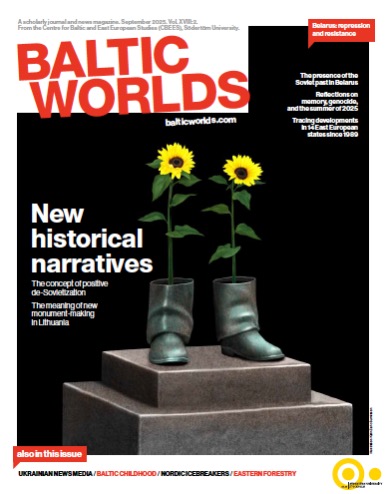Ilija Batljan. Committed to Baltic Sea issues
Södertörn University, where Baltic Worlds is published, now has a chairman of the governing board, a Swedish former Social Democratic career politician, who grew up the Montenegro of Yugoslavia: Ilija Batljan. Here he is profiled in an interview

 Issue 2025, 2:
Issue 2025, 2: